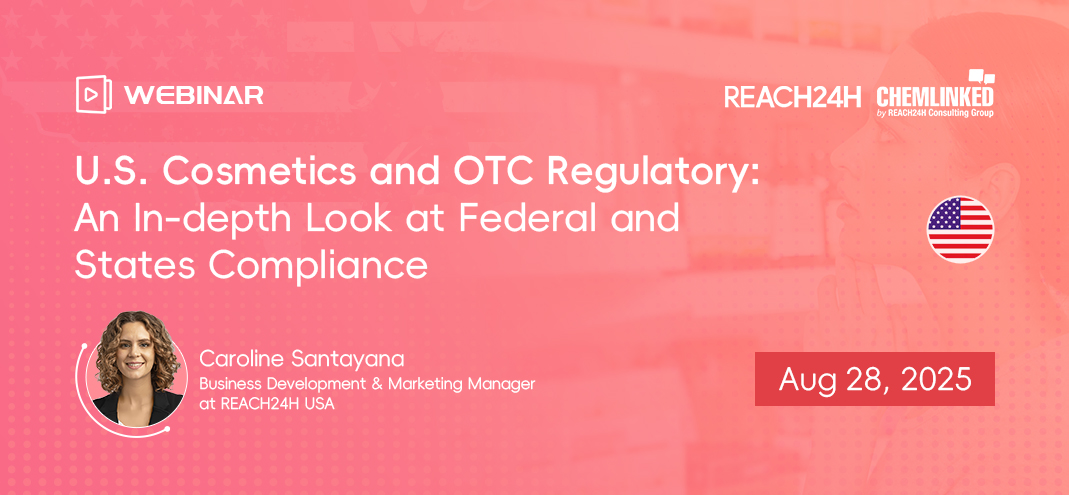Introduction
In recent years, exosomes have emerged as a hot topic in biotechnology and cosmetics. As research advances, products claiming to contain plant-derived or animal-derived "exosomes" are flooding the market. However, not all of these products live up to their claims—some may only include plant extracts or animal-origin ingredients without containing real exosomes.
To ensure product transparency and regulatory compliance, it's essential to understand what exosomes are, how they can be used in cosmetics, and when an INCI name application is necessary.
What Are Exosomes?
Exosomes are a subtype of extracellular vesicles (EVs)—nanoscale, non-replicable, and nucleus-free particles naturally released by cells. Typically measuring 20–200 nanometers, they contain proteins, lipids, polysaccharides, and RNA, playing key roles in cellular communication and signal transduction.
They originate from various sources such as human stem cells, animal tissues, or plants, and their biological functions vary based on their origin. For example, plant-derived exosomes are generally 40–150 nm in size and may carry DNA, small RNAs, and proteins.
Summary of Regulatory Requirements for Exosome Applications Worldwide
| No. | Country/ Region | Regulatory Status | Applicable Regulation |
| 1 | Mainland China | Human-derived exosomes: According to the Safety and Technical Standards for Cosmetics (2015 Edition), Table 1 Prohibited ingredients for cosmetics, No. 390 "human cells, tissues, or products of human origin" are prohibited for use as cosmetic ingredients. Non-human-derived exosomes: Currently no specific regulatory requirements. It is recommended to make considerations based on the actual situation of the raw material.. | Safety and Technical Standards for Cosmetics (2015 Edition) |
| 2 | Taiwan (China) | Human-derived exosomes: "Cells, tissues or products of human origin" are prohibited ingredients in cosmetics in Taiwan (except for individual cases approved by the central competent authority after case-by-case review). Non-human-derived exosomes: Use in cosmetics requires case-by-case review. | [1] Taiwan (China) FDA, amendment to "List of Prohibited Ingredients in Cosmetics", Document No. 1131601051, March 21, 2024 [2] Taiwan (China) FDA, "Documents Required for Case Review of Exosomes Derived from Human Cells Used in Cosmetics", Document No. 1131600511, March 21, 2024 |
| 3 | European Union | Human-derived exosomes: EU Regulation (EC) No. 1223/2009, Annex II/416, "cells, tissues or products of human origin" are prohibited as cosmetic ingredients. Non-human-derived exosomes: Currently no specific regulatory requirements. It is recommended to make considerations based on the actual situation of the raw material.. | EU Regulation (EC) No. 1223/2009 |
| 4 | United States | No specific regulatory requirements at present. It is recommended to make considerations based on the actual situation of the raw material.. | / |
| 5 | Japan | Human-derived exosomes: Must comply with the requirements under "Section 3: General Provisions for Human-Derived Ingredients" in the Standards for Biological Raw Materials. Non-human-derived exosomes: Currently no specific regulatory requirements. It is recommended to make considerations based on the actual situation of the raw material.. | MHLW Standards for Biological Raw Materials |
| 6 | South Korea | Human-derived exosomes: Must comply with Cosmetic Act, Article 8, Appendix 3 “Safety Standards for Human Cell and Tissue Culture Fluids.” Non-human-derived exosomes: Currently no specific regulatory requirements. It is recommended to make considerations based on the actual situation of the raw material.. | Ministry of Food and Drug Safety (MFDS), Cosmetic Act, Article 8, Appendix 3 |
Why Is INCI Registration Important for Exosomes?
The International Nomenclature Cosmetic Ingredient (INCI) system is a globally recognized naming standard for cosmetic ingredients. Administered by the Personal Care Products Council (PCPC) and reviewed by the International Nomenclature Committee (INC), INCI names ensure product transparency and support regulatory compliance in many countries.
Key Reasons to Apply for an INCI Name:
To export cosmetics or raw materials to global markets.
To obtain a scientific and standardized name for a novel ingredient.
To enhance product credibility and brand professionalism.
When Is an INCI Application Required?
You should consider applying for an INCI name if:
Your cosmetic formula includes a new type of exosome, not yet listed in the official INCI database.
You plan to market or export a product that includes exosome-related ingredients.
Your ingredient is a biological material, such as animal stem cell-derived exosomes, or plant vesicles that require formal identification.
What Exosome Ingredients Are Already Registered?
Up to 14th, May, 2025, the official wINCI online database lists 28 exosome-related INCI names. These include:
Human-derived exosomes (e.g., Human Umbilical Mesenchymal Stem Cell Exosomes)
Deer-derived exosomes (e.g., Deer Amniotic Fluid Stem Cell Exosomes)
Marine exosomes (e.g., Salmon Testis Exosomes)
Milk exosomes
These registered names can serve as a reference for companies developing similar raw materials.
What Documents Are Required for an INCI Application?
To apply for an INCI name for exosome-based ingredients, you'll generally need to prepare the following:
Commercial name of the ingredient
Ingredient description and functions
Source of exosomes (e.g., cell type or tissue)
Overview of production method
Identification methods for both exosomes and source cells
Exosome purity and characterization data
While efficacy test reports are not required during initial submission, supporting data may be needed if you're applying to expand the ingredient’s intended use later on.
FAQ
Q: Do I need an INCI name before filing a cosmetic product with the U.S. FDA?
A: Yes. If any ingredient in your formulation lacks an official INCI name, applying for one is highly recommended.
Q: Can I apply for an INCI name with a freeze-dried or liquid-form exosome?
A: Yes. The physical form of the ingredient does not affect INCI eligibility.
Q: Is a functional test report necessary for INCI registration?
A: Not for the basic application. But additional data may be required for expanding usage claims.
Expert Support for INCI and Global Cosmetic Compliance
At REACH24H, we offer end-to-end INCI application services, including:
INCI name application to the International Nomenclature Committee
Korean INCI name standardization
Testing arrangement and safety assessment
U.S. FDA DMF (Drug Master File) filing
Full document preparation, progress tracking, and post-submission support
With our proven track record in the cosmetic regulatory space, we help clients navigate the complex global compliance landscape—efficiently and professionally.





